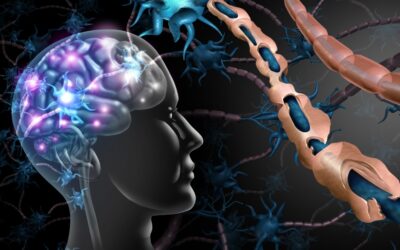Magnesium is an essential nutrient required to maintain overall health. However, nearly half of Americans don’t meet daily magnesium intake recommendations.
Magnesium deficiency is associated with several diseases. It is vital to ensure your food intake boosts the magnesium levels in your body.
We’ll shed light on what foods you can eat to aid your cause, but first—
Understand Why Magnesium Is Important
Magnesium is one of the seven essential minerals the body needs to function. It facilitates muscle and nerve functions, regulates energy production, keeps blood pressure and blood sugar in check, strengthens bones, builds essential proteins, and maintains brain and heart functions.
If you don’t get enough of it, you may experience the following:
- Abnormal heartbeat
- Fatigue
- Headaches
- Hyperexcitability
- Loss of appetite
- Nausea
- Pins and needles
- Shaking
- Spasms
- Vomiting
- Weakness
In the long term, magnesium deficiency may cause potassium and calcium levels to drop. It is also linked to various severe health conditions, including Alzheimer’s, diabetes, heart attack, osteoporosis, sleep problems, and stroke.
What Are the Main Benefits of Magnesium?
Healthy Bones
Did you know about 60% of the body’s magnesium is stored in the bones?
A 2013 study showed the detrimental effects of magnesium deficiency on bone formation. Low magnesium also reduces active vitamin D levels. Clearly, this mineral is essential for bone health.
A three-year study found that people who consumed less magnesium had a 9.21-fold higher risk of fractures. Another study showed that increased magnesium intake could increase bone mineral density in the hip and femoral neck.
Improve Mood
Low magnesium levels are associated with depression—people with deficiencies have a 22% greater risk of it. Supplementing this mineral could improve symptoms of depression and anxiety.
Alleviate PMS Symptoms
When taken with vitamin B6, magnesium supplements can be an excellent treatment for premenstrual syndrome. According to a 2012 study, taking a 250 mg tablet daily can also reduce related depression, anxiety, and cravings.
Maintain Cardiovascular Health
Higher magnesium levels in the body can lower the risk of cardiovascular diseases. A 2018 paper showed that repleting magnesium levels after a heart attack could reduce the risk of arrhythmias and death. Furthermore, increasing magnesium intake by 100 mg/day could reduce the risk of stroke by 2%.
Magnesium supplements can also improve cardiovascular risk factors, producing favorable effects on fasting plasma glucose, high-density lipoprotein, low-density lipoproteins, triglycerides, and systolic blood pressure.
Manage Blood Sugar Levels
Higher magnesium intake can reduce the incidence of type 2 diabetes, likely because the mineral plays a role in glucose and insulin metabolism.
You can also ingest it artificially, as a 2017 systematic review showed that magnesium supplements improve insulin sensitivity.
Prevent or Relieve Migraine
A study found that 41% of patients who received magnesium therapy reported “meaningful relief” with cluster headaches. This is backed by a systematic review, which showed magnesium may be “possibly effective” for preventing migraines.
To keep migraines at bay, keep your magnesium dosage at 400 to 600 mg daily.
Supports Deep Sleep
Magnesium supplements can play a modulatory role in the GABA (γ-aminobutyric acid) system and lead to a significant increase in serum melatonin concentration. This means they send a signal initiating normal sleep onset. A 2021 analysis showed they could lower the time it takes to fall asleep by an average of 17.36 minutes.
To top it off, magnesium supplements are also associated with better sleep quality.
Recommended Magnesium Intake
The body does not produce magnesium on its own, so it must be obtained from food sources, supplements, or tap, mineral, or bottled water—in just the right quantities.
Here are the Recommended Dietary Allowances (RDAs) by age:
| Age | Magnesium Intake |
| Newborn to six months | 30 mg |
| Seven months to 1 year | 75 mg |
| 1 to 3 years | 80 mg |
| 4 to 8 years | 130 mg |
| 9 to 13 years | 240 mg |
| 14 to 18 years | 410 mg (360 mg for females) |
| 19 to 30 years | 400 mg (310 mg for females) |
| 31 to 50 years and older | 420 mg (320 mg for females) |
*Pregnant women should ingest more magnesium, as it helps keep unwanted disorders at bay. It also prevents low preterm weight and preeclampsia.
What Food Is Highest in Magnesium?
Are you looking to up your magnesium intake?
Here’s a list of magnesium foods you should be eating:
- Swiss chard, cooked: 31% of the daily value (DV) per cup (150 mg)
- Dark chocolate (70% to 85% cacao solids): 31% of the DV per 2 ounces (129 mg)
- Chia seeds: 24% of the DV per ounce (95 mg)
- Almonds: 20% of DV per ounce (80 mg)
- Spinach: 20% of the DV per 1/2 cup (78 mg)
- Cashews: 19% of the DV per ounce (74 mg)
- Pumpkin seeds: 19% of the DV per ounce (74.3 mg)
- Oil-roasted peanuts: 16% of the DV per 1/4 cup (63 mg)
- Black beans, cooked: 16% of the DV per 1/2 cup (60 mg)
- Soy milk: 15% of the DV per cup (61 mg)
- Edamame beans, cooked: 13% of the DV per 1/2 cup (50 mg)
- Peanut butter: 12% of the DV per 2 tablespoons (49 mg)
- Whole wheat bread: 12% of the DV per 2 slices (46 mg)
- Avocado: 11% of the DV per cup (44 mg)
- Brown rice, cooked: 11% of the DV per 1/2 cup (42 mg)
- Low-fat yogurt (8 oz): 11% of the DV per 8 ounces (42 mg)
Don’t worry if you take in more magnesium than required. Toxicity is practically impossible from food sources alone; your kidneys will process and eliminate the excess in urine.
Supplements to Supplement
Your body needs the daily recommended intake of magnesium to thrive. If you can’t get it from food, supplements are safe and convenient alternatives.
Wondering what form of magnesium is best for health?
Magnesium citrate and magnesium acetyl taurate and malate have the highest bioavailability, so they are excellent additions to your diet.
However, care must be taken to meet the recommended dosage. Too much magnesium could cause diarrhea, nausea, and cramping. It may also lead to trouble breathing, irregular heartbeat, or cardiac arrest in worst-case scenarios.
Word to the Wise
Magnesium supplements can interact negatively with some medications, such as:
- Antibiotics: Magnesium supplements may reduce the absorption of quinolone, tetracycline, and nitrofurantoin antibiotics.
- Blood pressure medications: Mg supplements could reduce blood pressure by as much as 6/2.8 mm Hg, which can be problematic for hypotensive people.
- Diabetes medications: Mg supplements may interact with medications like glibenclamide and glimepiride, affecting blood sugar control.
- Diuretics: Loop (such as furosemide) and thiazide can increase magnesium excretion, increasing the risk of deficiency.
Take Home Message
Magnesium is involved in more than 300 enzyme systems, making it an essential macronutrient for maintaining overall health.
So switch up your food intake or explore the vast world of mineral supplements. Consult your doctor before making significant changes to your diet to ensure you get all the nutrients you need.
Other Articles You Might Be Interested In:
Health Benefits of Broccoli Sprouts
Broccoli Sprouts Broccoli sprouts may be small in size, but they pack a powerful punch when it comes to health benefits. These tiny sprouts are loaded with nutrients and antioxidants that can help protect against a range of health issues, from cancer to heart disease....
Is Reverse Osmosis Water Filtration Better For You?
Water is essential for life, but not all water is created equal. Tap water can contain harmful contaminants and chemicals that can have adverse effects on our health. This is where reverse osmosis water purification comes in. Reverse osmosis (RO) is a highly effective...
Health Benefits of Omega 3 Fatty Acids
Health Benefits of Omega-3 Fatty Acids and Recommended Foods Omega-3 fatty acids are an integral part of cell membrane phospholipids. They provide structure, act as a barrier to protect cells from environmental aggression, and influence various bodily functions to...
Health Benefits of Daily Sunlight
Health Benefits of Daily Sunlight There are two sides to every coin—and two stories to tell about sunlight. Skincare enthusiasts and specialists, it seems, have taken a definitive stand against the sun, branding it as a villain that causes premature aging and leads to...
Benefits and Harms of Dietary Fat
Fat is one of three macronutrients found in food that is essential for cell survival in humans. However, it is often demonized as being “unhealthy”. But that couldn’t be further from the truth. Some fats have been linked to improved cognition and decreasing the risk...
Protein Improves Brain Health
Studies have shown that diets high in animal protein may help to prevent neurological conditions such as Alzheimer's disease and Parkinson's disease. Furthermore, there is a growing body of evidence that animal protein might be the key that unlocks the door to health...
Protein: Essential to brain health and repair
Protein, often referred to as the “building blocks of life” is arguably the most critical macronutrient for brain health and repair and disease prevention as we age. One of three macronutrients found in food the body is primarily composed of protein (second only to...
Simple versus Complex Carbohydrates
Carbohydrates are one of the three macronutrients that make up the foundation of our diet, along with protein and fat. They are found in a wide variety of foods, from fruits and vegetables to bread and pasta. Despite their importance in our diet, carbohydrates have...
Brain Health and Recovery: Food IS Medicine
Brain Health and Recovery: Food IS Medicine Food can be an excellent tool to enhance brain health and recovery. However, if you thought the brain was a complicated system to understand, the data on nutrition is far more complicated. So, spoiler, there is no “perfect...
Brain Derived Neurotrophic Factor (BDNF) and Brain Health
Brain-derived neurotrophic factor (BDNF) is a protein that aids in cell function and promotes the growth of new nerve cells (neurogenesis). Studies have shown that BDNF plays a critical role in neuroplasticity (the brains ability to build new nerve connections) and...











